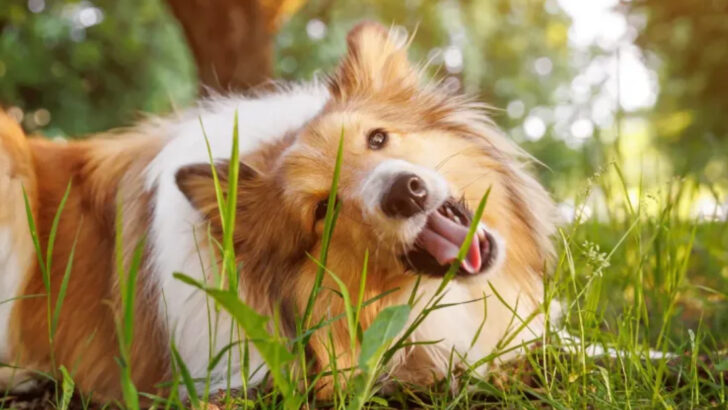Your dog isn’t turning into a cow—but something weird is going on. One minute they’re sniffing around, the next they’re chomping down lawn like it’s salad time. And just when you think it’s harmless… surprise! There’s the vomit. Grass eating might seem random or gross, but for many dogs, it’s basically a hobby. Some do it for taste. Others? Because their stomach’s feeling funky. Or maybe it’s boredom. Or instinct. Or all of the above. But here’s the twist—not all grass munching is innocent. Sometimes it’s a red flag dressed as a green snack. And that’s when pet parents need to pay attention. Let’s dig into what’s normal, what’s not, and when it’s time to put the brakes on the backyard buffet.
Natural Instincts
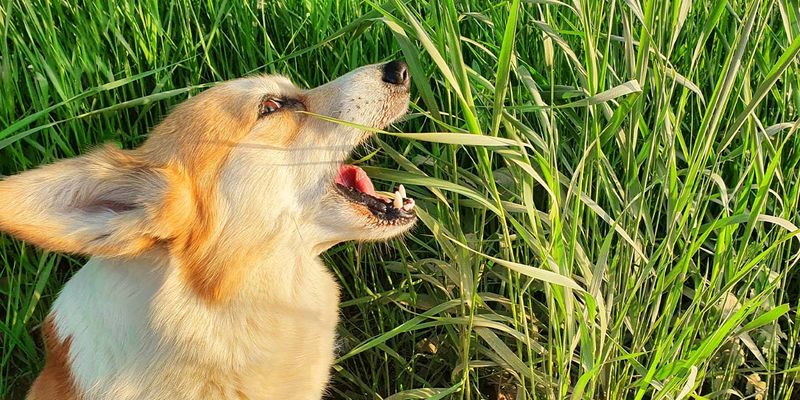
Dogs have an innate desire to explore their environment, often leading them to nibble on grass. This behavior could be rooted in their evolutionary past, where foraging was essential for survival.
Even domesticated dogs retain these instincts, occasionally munching on grass to satisfy their curiosity. This nibbling is usually harmless and just a part of their natural behavior.
If your dog seems content and healthy while grazing, there’s likely no cause for worry. However, excessive consumption or signs of discomfort might necessitate a check-up.
Dietary Deficiencies
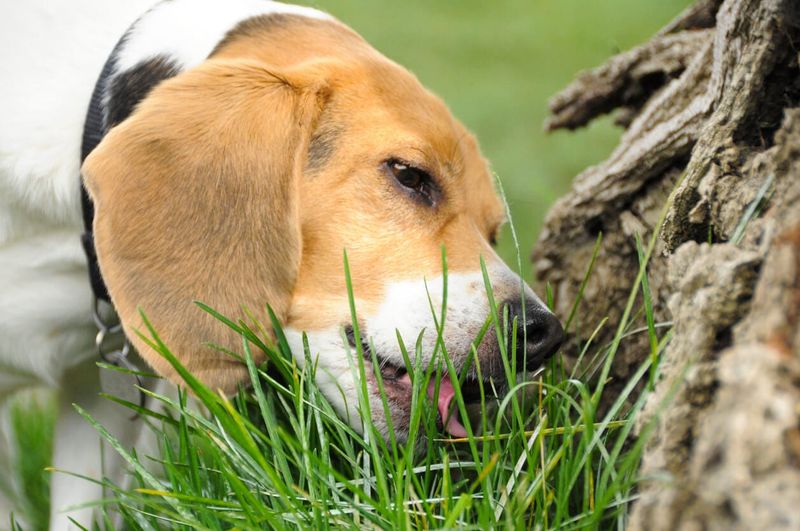
Sometimes, grass-eating can indicate that a dog is attempting to compensate for dietary deficiencies. If their diet lacks specific nutrients, they may turn to grass as a supplement.
Consider assessing your dog’s diet to ensure it contains balanced nutrients. Consulting a veterinarian can provide insights into whether their grass-eating stems from a nutritional gap.
A well-balanced diet typically reduces this behavior. Always keep an eye on sudden changes in eating habits, as they might point to other health issues.
Upset Stomach
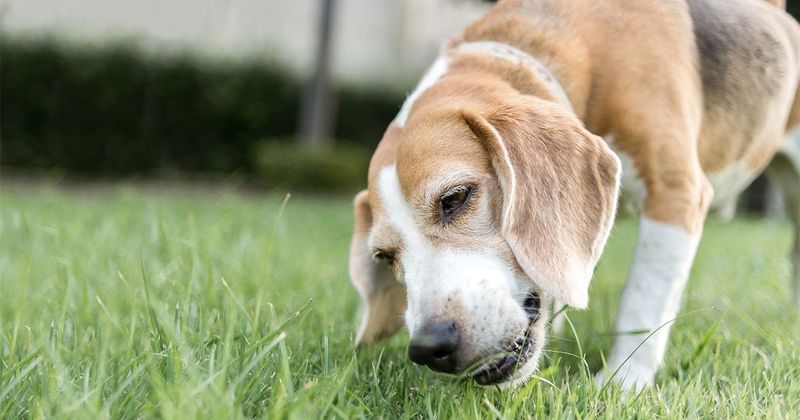
With a look of discomfort, a dog may turn to grass in an effort to soothe an upset stomach. This behavior often leads to vomiting, which can bring relief.
If your dog occasionally eats grass and vomits, it’s usually not a major concern. However, frequent episodes should prompt a visit to the vet.
Understanding this behavior can help you differentiate between casual grass-eating and signs of digestive distress requiring attention.
Boredom or Anxiety
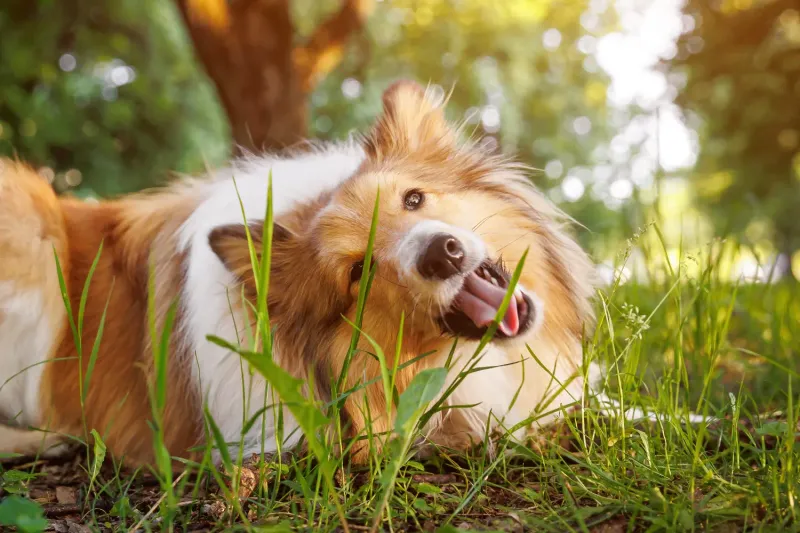
Dogs sometimes eat grass when they’re bored or anxious. This behavior can serve as a distraction from their feelings, providing a temporary sense of comfort.
Engaging toys and regular exercise can alleviate boredom and reduce anxiety-related grass-eating. Pay attention to any changes in your dog’s environment that might trigger these feelings.
Persistent anxiety or boredom might require a deeper look into your dog’s daily routine and emotional well-being.
Habitual Behavior
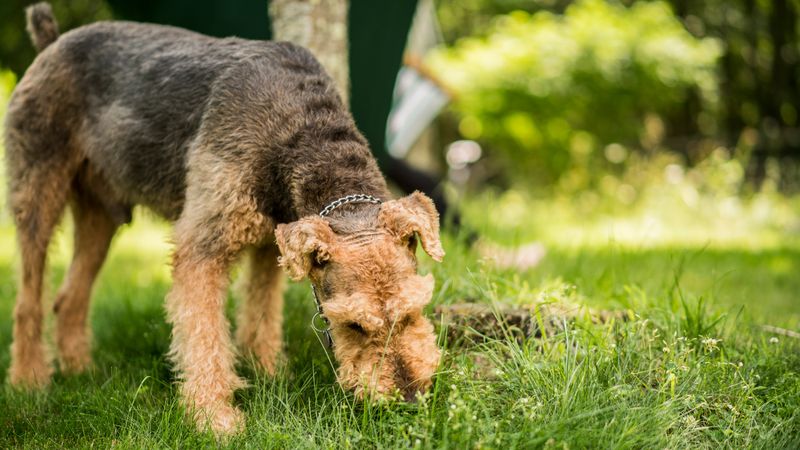
Grass-eating can become a habitual behavior for some dogs, part of their daily routine. While it might seem peculiar, if the dog appears happy and healthy, it’s typically harmless.
Understanding that this is simply a habit can help alleviate concerns. Observing your dog’s overall behavior and health will indicate whether any changes are needed.
If the habit doesn’t interfere with their health, there’s generally no need to worry. Monitoring is key to ensuring it remains just a quirky trait.

